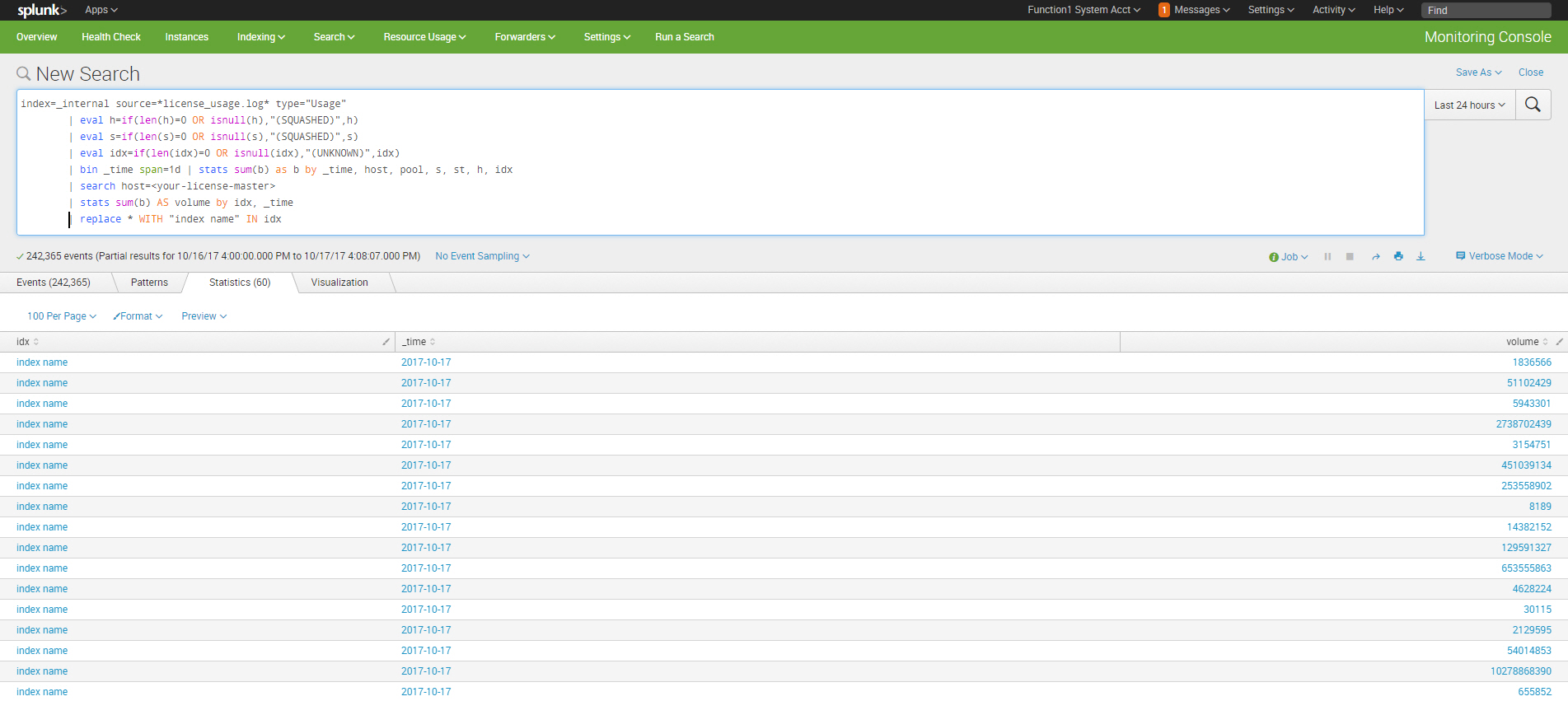

# Use the sort command to sort Logins so that the clientip with the most Logins is displayed at the top of the list. Index=main sourcetype=access_combined_wcookie | stats dc(JSESSIONID) as Logins by clientip # Using the by clause, split the Logins by clientip. Index=main sourcetype=access_combined_wcookie | stats dc(JSESSIONID) # Use search terms with the stats dc function to count all sessions (JSESSIONID)that have been used in our web application data Index=main sourcetype=access_combined_wcookie file=success.do OR file=cart.do status=200 | stats count as Transactions by file | rename file as Function # Using the rename command, change the name of the file field to Function. Index=main sourcetype=access_combined_wcookie file=success.do OR file=cart.do status=200 | stats count as Transactions by file Use an as clause to rename the column to Transactions. # Notice that the count column is labeled count by default. Index=main sourcetype=access_combined_wcookie file=success.do OR file=cart.do status=200 | stats # Use the stats count function with a by clause to count events by the file that was served /tutorial/splunk/labs/fundamental/Splunk_f1_Data.zip index=main sourcetype=access_combined_wcookie file=success.do OR file=cart.do status=200
#Splunk stats by index download#
Sample Data - Download sample data for lab. Use the count function of the stats command to find out how many items were added to a cart The eval command creates new fields in your events by using existing fields and an arbitrary expression. The stats command calculates statistics based on fields in your events. Difference between stats and eval commands If a BY clause is used, one row is returned for each distinct value specified in the BY clause. If the stats command is used without a BY clause, only one row is returned, which is the aggregation over the entire incoming result set. Stats: Splunk Commands Tutorials & Reference Commands Category: Filtering Commands: stats Use: Calculates aggregate statistics,such as average, count, and sum, over the results set.


 0 kommentar(er)
0 kommentar(er)
